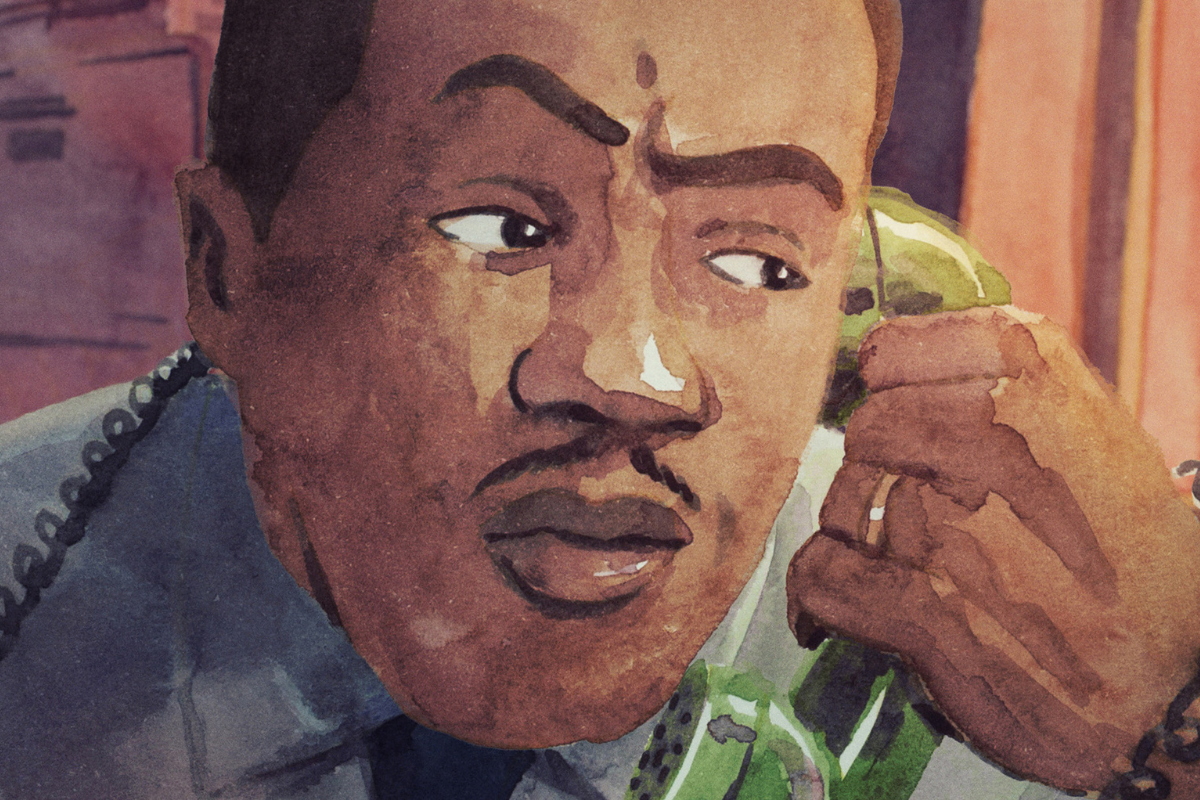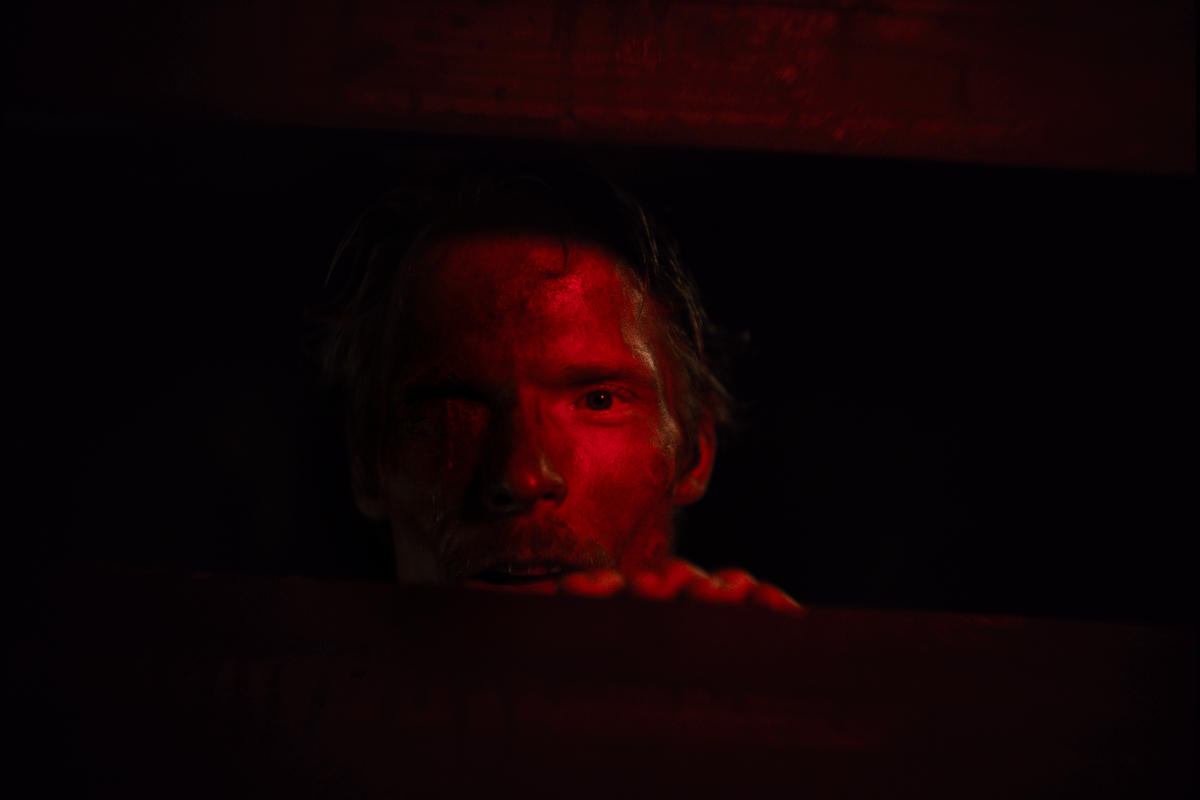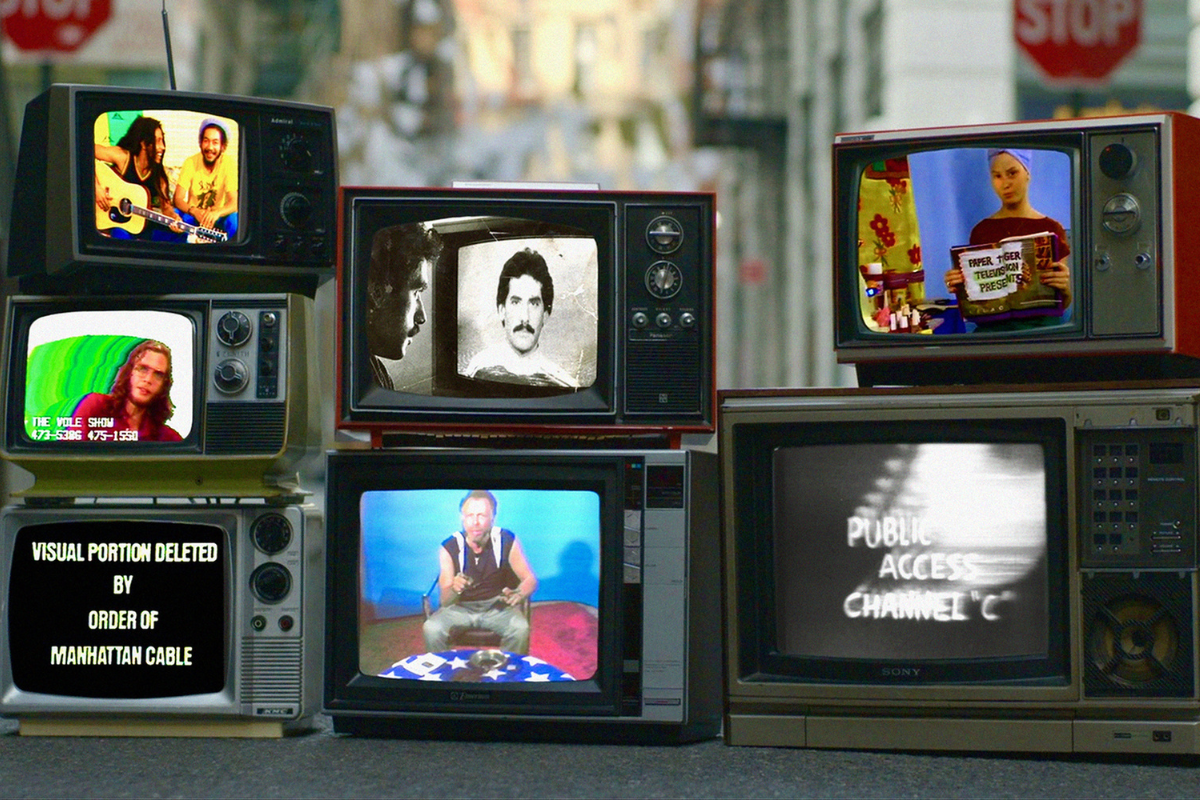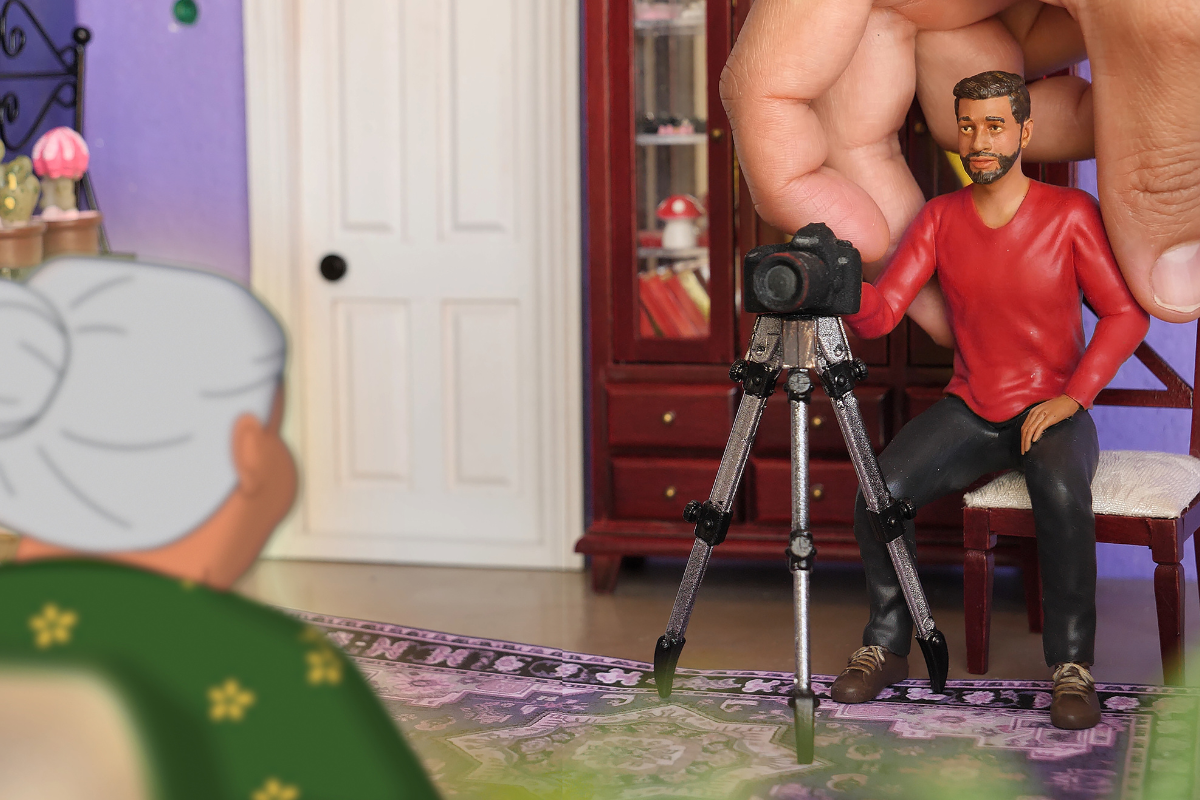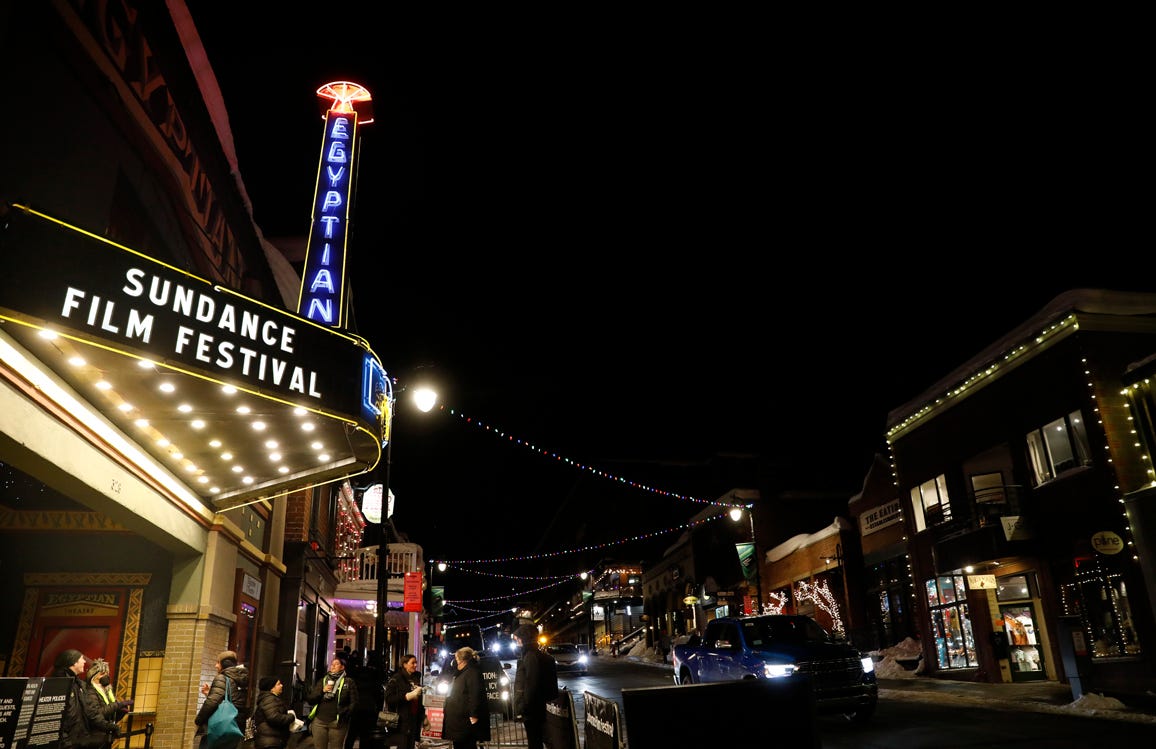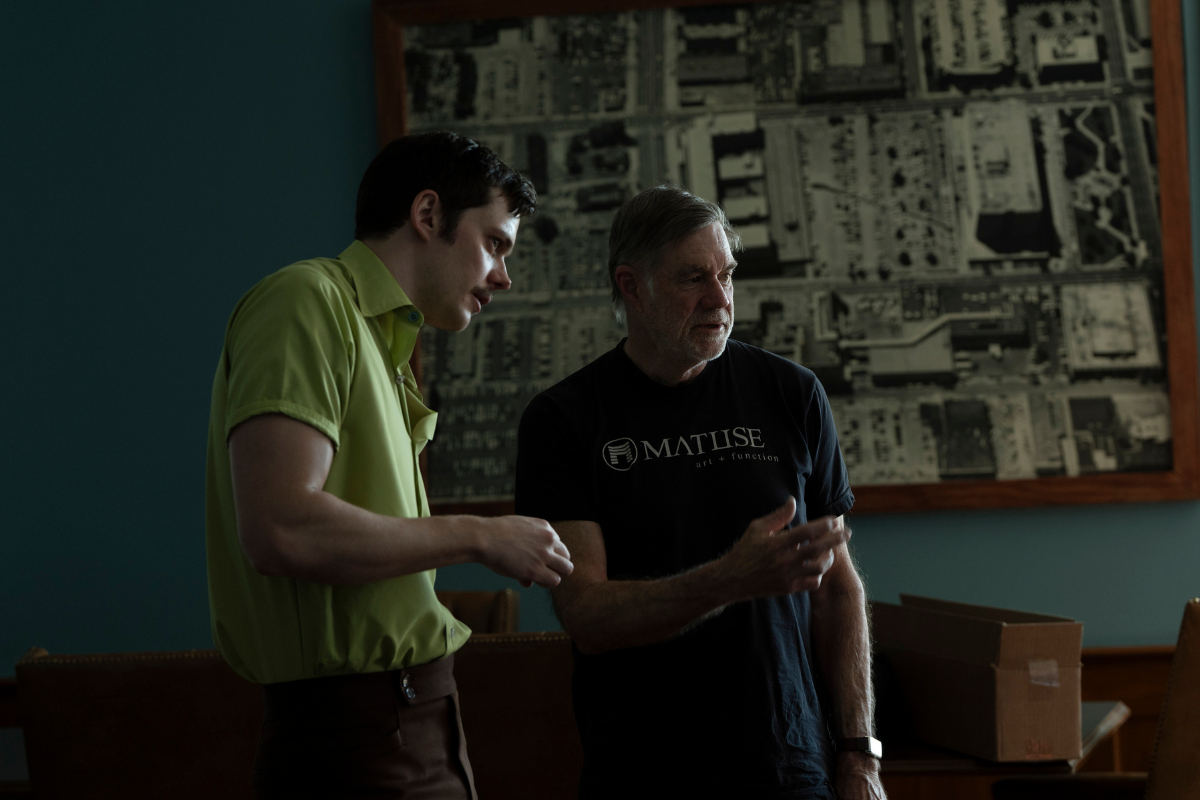INTERVIEW: “The Umbrella Academy” Producer Jason Neese
The hit Netflix series, “The Umbrella Academy” launched season 2 with a bang! Bryan Young discussed the ins and outs of producing a hit streaming show, breaking into screenwriting, and so much more with one of the show’s producers, Jason Neese.
Jason Neese is a producer whose latest show, The Umbrella Academy, is the talk of the town. Working for Netflix, he’s also brought Dear White People, and brought unREAL to life for Hulu. He’s a writer as well as a producer and offered time to talk to us about the latest season of The Umbrella Academy and his advice to aspiring screenwriters out there.
[This interview has been edited for content and clarity.]
Script: There are a lot of different producers on The Umbrella Academy and “producer” can have a lot of different connotations to it. What does your brand of producer do?
Jason Neese: I have a twin brother, and we do these together. For this show, Jamie and I came on to start off as post-producers—from all of the visual effects, all of the music, how the show looks in color grade, dealing with the cameras and working with the data from set, getting it from there to our vendors for the studio and the network. We work with the heads of all those departments I just mentioned to get it all done. It's very collaborative and definitely takes a village.
We're there from day one on prep—we're the only producers, except for the executive producers, that are there from day one until the delivery. We span the whole business of the show when it comes to that, which is interesting because I came out here as a writer. When you come to L.A. cold, and you wanna get your foot in the door, you'll do whatever. My brother and I were no different than that. So, I started working as a production assistant on set, but I slowly started finding gigs on movies back in the day, movies like Underdog and The Love Guru.
Then I segued into post because it allowed me to write more and be closer to the directors and executive producers. It was like ding ding ding. Plus, I was tired of locking down parking lots for 18 hours, standing there like a zombie. We worked our way up and ended up at producer level on that, and we took on a show. Our first real producer title is the show called Legit, with Jim Jefferies, and we did all four seasons of unREAL, and then Dear White People, which kinda got us in the socially conscious space of material. Because we had a relationship with Netflix, we were interviewed by the show creator of The Umbrella Academy, Steve Blackman, and he brought us on.
For Season two, our role kept expanding. Creatively working with the editors that tell the story never changed though. When it comes to that, it's this whole bunch of footage that arrives, and we shape it together with the editor. Steve Blackman and Jeff King will then come in and see a show and really dig in with their genius. So, that's kind of the long answer for the type of producing I do for The Umbrella Academy. We also do our own things. Jamie and I were hired by Armory Films that did the movie, The Peanut Butter Falcon, recently. We wrote and directed digital shorts with Emma Roberts as our star.
Script: With something like The Umbrella Academy, what is the relationship between how it's written and the producers? If I'm a writer, and I want to break into a room, is there even a room for The Umbrella Academy or is it like an auteur sort of situation? What's the relationship like with the writers and a producer like yourself?
Jason Neese: Yes, there is a room. This room is led by Steve Blackman, who is the show creator and truly the mastermind genius when it comes to the script side. For me and my role when interacting with writers, it’s kind of particular. First, we’re just across the the hall from each other, so we're very intimately placed. It is oftentimes that writers and editors need to communicate with each other to make sure that if there are questions from the editor side, they're being answered by the person that wrote it. So, that relationship is very much there. Additional writing that has to happen after its shot is when writers also are needed. Often Steve Blackman will do that. He's kind of the auteur of it all, as you would put it. But the writers or executive producers are some form of a producer title, too. They will come and work with me, and the editors, on the different cuts of the show. Then we get the notes from the studio and the network, and we all work together as a kind of family to get the show into the final look before we lock it and move on.
Script: How much evolution is there from those initial scripts in the writer’s room through to production, through to post-production when you're actually doing that final edit?
Jason Neese: Well, I'll step back and say, it's different every show. I worked on unREAL, and it was kind of the behind-the-scenes fictional look at a show like The Bachelor that Sarah Gertrude Shapiro masterfully created, and what was shot compared to what we beat into a show—script to production—was sometimes different. And then from production to us, it could be different. So, on those occasions the final time the episodes were written could be in editorial with us and the executive producers behind the series.
For The Umbrella Academy, Steve Blackman’s scripts are so point on that when they come to the editors by the end of it... I'm not gonna say it's paint by numbers, because that's not true, but I will say, a lot of times, it is. On season one last year, on episode six and seven, we did a thing where we were with Hazel and Cha-Cha on the other side of it, and we kinda saw it from both sides, that the... spoilers are coming if you haven't seen season one, but... the script didn't get us there. Like, if Blackman and all of us were in a room, we need to think outside of the box. And we really had to rewrite those two episodes a little bit in editorial to get the story in a way that we wanted. We had to use some tricks as well. We used a ticking clock and a reverse of time that was not scripted at all. It's interesting in the Hollywood making of it all, sometimes it's not so A to B to C to D, script to production to edit to finish. Sometimes it's kind of like this weird graph that goes everywhere. But at the heart of it, the writing of The Umbrella Academy is a hugely specific road map that we follow. And of course, Steve’s adapting this with the room from the IP material, the comic book. But the lovers of the comic books very quickly know that we take a lot of liberties, so there's different elevations of writing that are happening even inside of that.
Script: What are things that you like seeing as you're looking at the script from a producer standpoint? What kind of scripts do you like reading, generally? A lot of people will take the advice like, “Hey, keep all the camera direction out of it. Keep everything that's not specific in there. Just tell the story.” Is it more like that? Or do you prefer more of that road map sort of script?
Jason Neese: It’s interesting; it depends how powerful you are. If you’re Tarantino or Steve Blackman, you can write whatever you wanna write in there. What type of scripts I like... At this point, Jamie and I kinda get that for our day job of producing—we can pick whatever we want. So, a script that really pulls me in is not one that is super technically written. It’s one that I can't put down, like you wouldn't be able to put down a good novel or a good short story. We read this script called Future Cult Classic and we produced it. It was just a pilot. Never made it, unfortunately, but it was the funnest script of all time. That script did not give a shit about stage direction or any of that “pan left…” none of that crap. But it was written beautifully in the format of a script. You just couldn't put it down because it was so graphically written, but in a way that it needed to be. The Umbrella Academy scripts only put in the things that Steve definitely wants to for sure see in there. We’ll put in songs. Our show’s so built on music. Steve has a lot of vision for the songs that are gonna be in a scene before, but sometimes he doesn't and won't put one in. He almost never has a bunch of camera moves in the script, unless it's just something that really plays the story. That's that relationship that writers and directors have, and definitely for The Umbrella Academy.
We have a rotating set of directors, and we have two DPs, Neville Kidd and Craig Wrobleski, who are just genius at their craft. Steve and the writer's room respect that, so they don't want to ever corner them on the set when it comes to some technical direction. But if it’s story driven, the technical direction will be put in there. But for my two cents, I just like to read a script that I don't get bored reading. I don't want to feel like I'm staring at a manual.
Script: I was gonna ask about the music, because it does feel like there are specific scenes that were designed almost like Edgar Wright Baby Driver, deliberately written for the pieces. What's the give and take between producers and those music choices? Or is it just sort of like The Umbrella Academy’s at a level where it's an unlimited pot of money and you can just do what you want?
Jason Neese: We get a budget, and that also falls completely under my domain with Jamie. Music license, and we work with the music supervisor. We had the music supervisor from Euphoria this year, which was amazing, because she just got an Emmy nomination, and she's a killer supervisor. Usually, it's a battle for the money. Our budget doesn't necessarily fit the vision of what the episodes look like with the music in it. Steve writes those scenes with those songs playing in his office, literally. And then other times, we'll find it in post. We have a great composer, too, Jeff Russo, who's amazing in his own right. Sometimes we have to pull a licensed track out and replace it with score, just because of the money of it all. A 30-second track could be $65,000, and we'll put eight of them in there in one episode, so it's a give and take. Jamie and I are absolutely the ones that have to deal. We feel like we're bargainers. We try to bargain with Steve Blackman, then we have to bargain with Netflix, the money keepers. So yeah, it becomes a dance because ours is just so heavily driven by our stylistic choice. We play against type. Backstreet Boys during a murder scene is not something that you expect... Kind of a unique way of doing it, you know?
Script: Is there a difference, you think, between what you'd normally expect for a network writer's room where maybe the lead time doesn't need to encompass the entire season at once? Does that change the writing or the production, knowing that you have to deliver that entire season at once? And especially with The Umbrella Academy season one, where you got no feedback from an audience publicly until the entire thing dropped. Does that change the writing?
Jason Neese: Yeah, I think that it's a very interesting point. I think it's one that writers are probably still learning a little bit... especially like you said, for season one’s show. We didn't know we were gonna be a big hit. We had high hopes, we all thought we had something special. As we were reading the scripts, we were just like, “Oh, I've never seen something like this on TV before.” With the streamers and the streaming dump all at once, for a show like us, I do think you see adjustments in the writing. I just don't think that you get to see it during the season. You see it the next season. So, that's the big difference. I've worked on network shows where you see the room real-time, absolutely adjust. If they get the back nine or whatever, things that were not hitting in the first thirteen, they absolutely are adjusting off of. For us, I think we kind of make a stand for what the scripts are gonna look like. We just lean into it.
Script: How does the writer's room function on The Umbrella Academy?
Jason Neese: Steve definitely is the commander-in-chief. They sit in that room and round-table talk out everything. It's very communal. So, that's a very fun room, from what I see. Everybody’s gonna be assigned their episode, but at the end of the day, I'm not super sure how the assignments go. I'm not sure if Steve already knows that this writer is gonna be good for this storyline here, or that Jesse will be good for episode seven. That's something that probably happens naturally in the room as they’re going over everything, when they're breaking story. I'm sure when someone breaks certain concepts, that Steve was like, “Wow, that's great,” he remembers that. You only see Blackman's name on like one or two the scripts, but he is very much involved in every script that’s written for the show.
Script: We talked about music, but is there any push-pull in terms of scope and scale for what writers give you?
Jason Neese: Yes. Season two, you'll notice that the episodes are between seven and nine minutes shorter.
That hit a couple of things. Our show naturally wants to cost a lot of money, so we always want to pay attention to living inside our budget the best we can. I think Steve wanted to play with pacing up the episodes. The Mandalorian kind of changed everything with its half-hour look at dramas. I worked on a show, Dear White People, that kind of did that too, but Mandalorian really had us thinking like, “What do these episodes look like that are more like 44 minutes long?” When streamers first came along, you're like, “No commercials! You can do whatever!” And so we're all making these 50-, 51-minute-long episodes because it didn't matter. They would have these kind of vague “Keep it under an hour” instructions, and we’re like “All right.” But then maybe we're learning that there's something in the sweet spot. But back to the scope, it does allow us to do more, ‘cause we know that we're gonna do it with less time. Steve Blackman cares about making the story as awesome as possible, and he will write it as big as possible, no matter the scope, and then he'll leave it to us to figure it out later. Straight up. That's how The Umbrella Academy is doing what it’s doing. Netflix knows that Steve Blackman knows how to make the show so unique, make the scope so huge, I mean, we do it with the set drive, the production design on our show is just unbelievable. The scope of our show actually feels bigger than what our budget says it is sometimes. And that's really the ingenuity of all the different department heads that are just kind of killers at what they do.
Script: But to do it on the budget and head to 1960s Dallas...
Jason Neese: The reality is, when you make something period, it automatically is more expensive. I don't even know what that looks like in post-COVID now. You know, with the JFK stuff and all that. A lot of people are [added digitally]. We don't have 600 people standing out there. In Dealey Plaza, there were probably ten. A lot of the visual effects, the set extensions, the buildings and all that are often sweetened with us. But we know that. This show is so massively big in this world-building scope that we have to all be one thing together, or it kind of falls apart. We knew the periodness of Dallas was gonna be a big challenge, but we were so excited. It just really seems very relevant. We didn't necessarily know at the time what was going to be happening in our world, but I think with it dropping right now, it was pretty serendipitous. It was definitely worth all the extra heart and pain to get it done.
Script: So, you mentioned The Mandalorian as re-organizing your thinking on the show. But going back a little further, it sounds like this is sort of like the filmmaking that George Lucas really tried to pioneer on Young Indiana Jones, pushing all of the effects to do those period pieces on TV budgets.
Jason Neese: Yeah, with The Umbrella Academy, we've always wanted to feel like you're watching a ten-part movie, and I think we're accomplishing that. Gerard Way is the original mastermind that created this amazing world that he gave Steve to play with, and then all of us to play with Steve and his vision for the show. And yeah, I think that we wanted to make a show that no one had ever seen on TV before, ever, ever, ever. At the end of the day, if it fits inside the budget, we're gonna do our best to do that. But there were never any true corner cuts. The bargaining is always going to be there. There are always going be producers like me working with the lead of a show being like, “Why can’t we afford that?” Jeff King is the true mastermind of doing that. He is an EP right-hand of Steve Blackman, and I kind of work directly with Jeff in a lot of ways in regards to that to keep the ship going. But Jamie and mine's kingdom’s small compared to Jeff's. Jeff truly is in charge of the whole shebang. But I don’t know, it’s just this weird dance. Steve writes these scripts the way he wants to write the scripts, and then we go from there. It starts with the script like we all know it does. It’s no different with The Umbrella Academy.
Script: Season one and season two took a lot of really interesting twists and turns with the story. How do you keep that under wraps? What is the story security that The Umbrella Academy goes through? Like what do the writers have to do? Other than the standard NDAs and stuff?
Jason Neese: For sure, everybody signs an NDA. Like, the babysitter of one of the producer’s mom probably has an NDA she has to sign. Beyond that, even with both seasons, Steve didn't release the final pages of the finale to anybody. None of the producers, none of the cast even knew what was happening. That's the ultimate protection. He holds on to the final pages that have those bad twists.
For security, it's not just scripts, but we push media, and we have to be very careful, especially in the time of COVID. You gotta realize, Jamie and I had to fully deliver the show remotely. I mean, none of the post was done at all. We had to creatively work with people around the world only in a remote fashion, so the security protocols of that were terrifying. The scripts themselves have passwords on them. Only the people that need them get them. Paper copies this season were almost eliminated altogether. It was almost kept full digital with passcodes on it, and passcodes sent in different ways, like passcodes sent to your text and you get the script in the email. We take it very seriously, all elements of it.
Script: You talked about in season one, the relationship between writers and editors. As far as refining that, how did COVID change that for season two?
Jason Neese: We got really lucky. It'll be interesting to see if we get a season three—which I assume we would since we're completely killing it right now—but we were kind of lucky ‘cause we had locked the first eight episodes. So, they had to go through the entire cut process and everybody said, “Okay, that setup, that's what that episode’s going to be. We'll finish that up.” But nine and ten, we had not. So, we were halfway there. I'll know more how bad this sucks next year, but our guys watched it remotely, and we have screen share. There are ways for Steve to see what the editors are doing remotely on the screen like this, and then we'll have a dial in and they’ll just talk back and forth. It's the next best thing as being in the room. It's not ideal, but it could be worse.
Plus, we know each other so well now. If this would have been a season one show, creatively, I think it would have been a bigger problem, but we've really gelled as a family because this show’s a huge undertaking. It’s the biggest a lot of us have ever worked on. But the COVID of it all became technically harder after we locked all the episodes, which is not necessarily a script thing.
Script: For writers who want to jump into and get into writing for Netflix shows or any network, what advice do you give people?
Jason Neese: I got all kinds of advice. I know it's different than when I first started, because all I wanted in life was to get into the writer's room. But back when I first started, it was right before the kind of Golden Age of TV. I couldn't find a room that had a spot for a writer's PA, or even a freaking free intern at the time. My suggestion for people that truly want to dive in, they should do a two-pronged attack. They should get their butts out here and immediately get a PA gig no matter what it is, and whether it's production or post or whatever. Probably should be production, either a production office or an on-set PA—do that immediately—but in tandem, be looking for those little ways into the writers room, because guess what, the only way you get those ways in is probably from the connections you make while being a PA in a production office. Being on a set with someone for 15 hours a day, for 40 days. You start making connections with people. And start writing scripts immediately. Have specs. Do not be that person that's just working on something. Have spec scripts that you're already running to showcase what you are and have more than just one, ‘cause your first one will suck, and then your second one will suck less, and so on and so forth.
Jamie and I are very lucky. We have our whole writing career now, with projects set up across the line with different beautiful places, but we didn't do any of the things I'm saying. We didn't do it that way, which goes to show you that there is no one true way. But this is the more classic way. Look at those writers programs, those internships, look at Warner Brothers’ Television Workshop or Paramount and all those places. Put your scripts in the script contest that have stakes and prizes that include getting in and being able to talk to people that could really give you a chance. Look at those in-house places like Spyglass, work a desk. You're gonna hate it, it's gonna suck really bad, you're gonna have to read 400 scripts, and you know what, you're gonna hate doing that, and your boss might be mean to you. But all these scripts you read, you're gonna learn exactly what works and what doesn't, what is selling, and what is being pitched out there in the world.
So, it's a full immersion. If you half-foot in, half-foot out, well, enjoy your time in L.A. You'll be gone within three years. I've seen it happen so often. But the biggest problem, the biggest thing that people do is they think that they're just gonna get in a writer's room, and they can wait until they get that. You're really just wasting a lot of time. And another thing you should be doing, write your own short scripts and shoot them. I was told this and I did this, and it helped me greatly. My brother and I wrote, and then produced with our friend Joe Price, a short film called The Gnome, and it eventually got hand-picked by John Carpenter for the El Rey network. It now helps us quite a bit. You can see what we can do with $5,000 and a bunch of hookups on the short film that you wrote, and it starts to really allow you to become a filmmaker. If you're doing all these things already, and you're coming out here, then all I can say is to grind as hard as you can.
A lot of people that come out here that have been filmmaking before they get to L.A. or New York. I guess some don't realize that it's a very humbling experience to go from being the most exciting filmmaker at your university or film school, to getting the right type of ice for the line producer and his Taco Bell Coke as a PA. You have to tell yourself, “I want this no matter what, and I'm gonna try 83 different things to do it until something pops.” If you outlast, then you will eventually get your shot. Or at least I did. I think most people do.
Script: Do you think going to L.A. these days is mandatory, or is that different for TV than features, in that they're producing all over the world now based on tax incentives in places? And especially in the age of COVID, going to L.A. isn't gonna get you anything right now.
Jason Neese: I'll tell you that my answer to that six months ago was very different than what it is now. My answers, six months ago, and will be in six months if COVID goes away with the vaccine, would be, you gotta come to L.A. I get it. We're shooting in Atlanta, we got a whole film presence in Atlanta, we had a whole film presence in everywhere. I'm from Wilmington, North Carolina, which had a whole film presence. That's why we came out to Hollywood to begin with. Dawson’s Creek, One Tree Hill and all that was shooting there. You know, Vancouver, Toronto.... What I've learned, is that all of my friends that I've met that work on location or in the production offices of these places that we shoot, whether it's Texas or Atlanta or Vancouver, by the end of the season, I'm always having the same conversation. They're always asking me, “How do I get to L.A.?” Because they realize that, at least for TV, the road only goes so far if you're working in Atlanta, Georgia, because you're gonna work on every show that comes to Atlanta, Georgia, but the minute they wrap, everyone leaves, and you're still in Atlanta, Georgia.
Now, granted, yes, if you're a true of filmmaker and want to just hardcore make shorts, then you're right. If you hit those film festivals up and you're one of the 1% that someone's like, “Holy crap, I wanna talk to that person that made it,” you might find yourself getting a ticket sent out to you to fly to L.A. to talk. I mean, unREAL, was a show I brought up a few times. Sarah Shapiro, who created it, she's the story that makes people think that anybody can do this, and it tricks you. She wrote and directed a short film, unREAL. And it was so amazing, such out-of-the-box thinking that SXSW took it on, and at the premiere of SXSW, Marti Noxon, who's a very powerful showrunner in Hollywood, was there and said, “I want that.” So, that is a story of someone that had her whole life changed in this very magical way and most people might not see how much work she did to get there to "get lucky." She's a creative genius and for most of us we shouldn't expect that to happen for us.
Script: It sounds like a short films are still part of that currency that gets you noticed.
Jason Neese: Absolutely, I mean, I still do short films. I'm really cutting my teeth with my brother right now. We wanna keep doing short films, not for the writing of it as much, but for the directing of it. We really wanna expand out to be writer and director. We want to be able to take on all the process. Working under Steve Blackman was like shadowing your master thesis professor. He's just such a pro at what he does. But yeah, short films are totally still worth it, especially spec ones. Spec TV show short films, they definitely still sell, not as much as I think they used to, but I definitely think there’s still a value in doing that. And it's fun. At a certain point, just being a PA for a year or two, getting gum-balls for whoever, you're like, “Holy crap, I wanna be doing what I came out here to do, which is the magic of filmmaking,” you know?
Script: Any parting advice for writers, generally?
Jason Neese: My biggest advice for writers—and I've been writing every day since I was literally like 12—the biggest problem I see with emerging or new screenwriters in that they only write one script, and they take 93 passes at it, and they never know when to just move on. My two cents is, at a certain point, you've gotta keep writing. Start a new script, 'cause I promise you that once you get midway through that new script or maybe the script after that, that you’re gonna be like, holy shit, I know what I was doing all the way back here on script one. And then you can come back and have a productive rewrite on that, as opposed to just spinning.
I have so many screenwriter friends that just spin in circles on one script, and it's not good, ‘cause out here, if you have to put all of your eggs of one basket, you're in trouble. You need to have a lot of scripts written, but they need to be written right. That takes some time. So, my two cents are, diversify what you're writing, and be okay with leaving a script behind for a second while you start something else that's exciting to you. At a certain point, by draft nine, you're not excited about that script anymore. You're kind of frustrated with it. But then this new concept, this prettier, shinier penny comes up and you can start writing on that, and then I really do believe that resets you for the projects that might need more work.
To watch more of Jason’s work, The Umbrella Academy is currently streaming on Netflix. Follow Jason on Instagram.
Get your idea on the page with our SU online course, Write Your Drama in Six Weeks
Bryan Young is an award-winning filmmaker, journalist, and author. He's written and produced documentary and narrative feature films and has published multiple novels and a non-fiction book. He's written for Huffington Post, Syfy, /Film, and others. He's also done work in the Star Wars and Robotech universes. You can reach him on Twitter @Swankmotron or by visiting his website: swankmotron.com.


